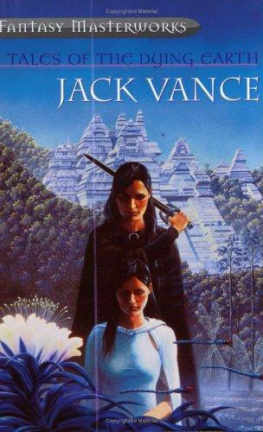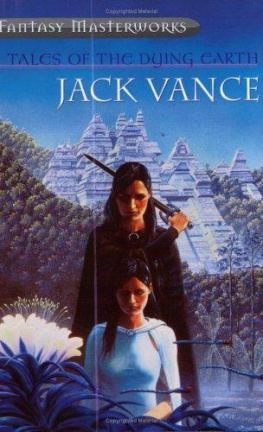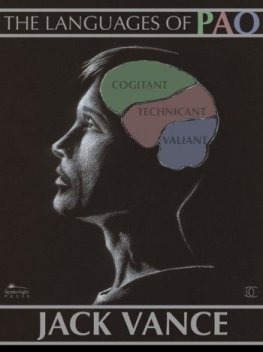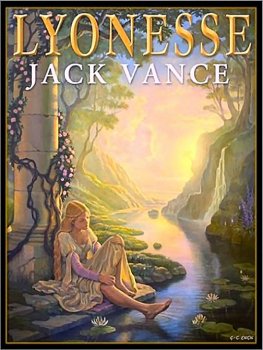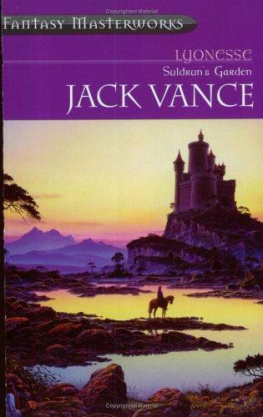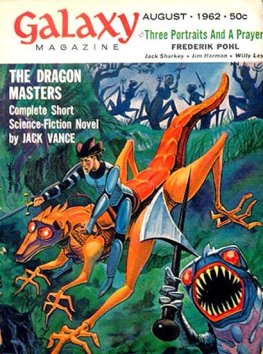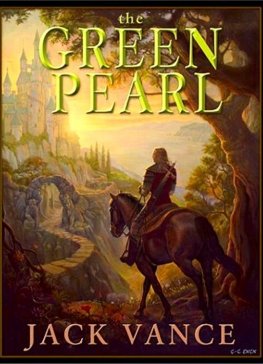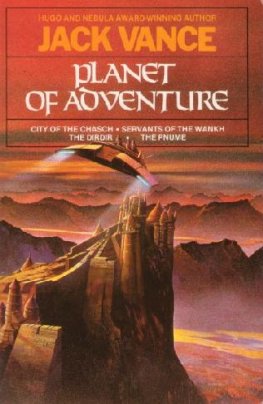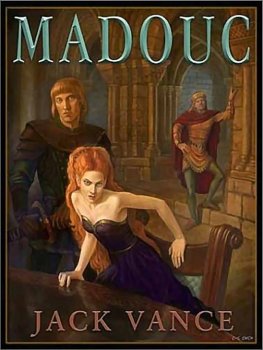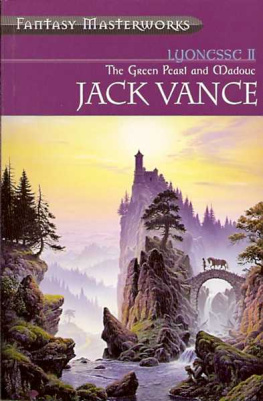Jack Vance - The Moon Moth
Here you can read online Jack Vance - The Moon Moth full text of the book (entire story) in english for free. Download pdf and epub, get meaning, cover and reviews about this ebook. year: 1961, genre: Science fiction. Description of the work, (preface) as well as reviews are available. Best literature library LitArk.com created for fans of good reading and offers a wide selection of genres:
Romance novel
Science fiction
Adventure
Detective
Science
History
Home and family
Prose
Art
Politics
Computer
Non-fiction
Religion
Business
Children
Humor
Choose a favorite category and find really read worthwhile books. Enjoy immersion in the world of imagination, feel the emotions of the characters or learn something new for yourself, make an fascinating discovery.

- Book:The Moon Moth
- Author:
- Genre:
- Year:1961
- Rating:5 / 5
- Favourites:Add to favourites
- Your mark:
- 100
- 1
- 2
- 3
- 4
- 5
The Moon Moth: summary, description and annotation
We offer to read an annotation, description, summary or preface (depends on what the author of the book "The Moon Moth" wrote himself). If you haven't found the necessary information about the book — write in the comments, we will try to find it.
The Moon Moth — read online for free the complete book (whole text) full work
Below is the text of the book, divided by pages. System saving the place of the last page read, allows you to conveniently read the book "The Moon Moth" online for free, without having to search again every time where you left off. Put a bookmark, and you can go to the page where you finished reading at any time.
Font size:
Interval:
Bookmark:
Jack Vance
THE MOON MOTH
Originally Published in Galaxy August 1961
The houseboat had been built to the most exacting standards of Sirenese craftsmanship, which is to say, as close to the absolute as human eye could detect. The planking of waxy dark wood showed no joints, the fastenings were platinum rivets countersunk and polished flat. In style, the boat was massive, broad beamed, steady as the shore itself, without ponderosity or slackness of line. The bow bulged like a swans breast, the stem rising high, then crooking forward to support an iron lantern. The doors were carved from slabs of a mottled black-green wood; the windows were many sectioned, paned with squares of mica, stained rose, blue, pale green and violet. The bow was given to service facilities and quarters for the slaves; amidships were a pair of sleeping cabins, a dining saloon and a parlor saloon, opening upon an observation deck at the stern.
Such was Edwer Thissells houseboat, but ownership brought him neither pleasure nor pride. The houseboat had become shabby. The carpeting had lost its pile; the carved screens were chipped; the iron lantern at the bow sagged with rust. Seventy years ago the first owner, on accepting the boat, had honored the builder and had been likewise honored; the transaction (for the process represented a great deal more than simple giving and taking) had augmented the prestige of both. That time was far gone; the houseboat now commanded no prestige whatever. Edwer Thissell, resident on Sirene only three months, recognized the lack but could do nothing about it: this particular houseboat was the best he could get.
He sat on the rear deck practicing the ganga, a zitherlike instrument not much larger than his hand. A hundred yards inshore, surf defined a strip of white beach; beyond rose jungle, with the silhouette of craggy black hills against the sky. Mireille shone hazy and white overhead, as if through a tangle of spider web; the face of the ocean pooled and puddled with mother-of-pearl luster. The scene had become as familiar, though not as boring, as the ganga, at which he had worked two hours, twanging out the Sirenese scales, forming chords, traversing simple progressions. Now he put down the ganga for the zachinko, this a small sound-box studded with keys, played with the right hand. Pressure on the keys forced air through reeds in the keys themselves, producing a concertinalike tone. Thissel ran off a dozen quick scales, making very few mistakes. Of the six instruments he had set himself to learn, the zachinko had proved the least refractory (with the exception, of course, of the hymerkin, that clacking, slapping, clattering device of wood and stone used exclusively with the slaves).
Thissell practiced another ten minutes, then put aside the zachinko. He flexed his arms, wrung his aching fingers. Every waking moment since his arrival had been given to the instruments: the hymerkin, the ganga, the zachinko, the kiv, the strapan, the gomapard. He had practiced scales in nineteen keys and four modes, chords without number, intervals never imagined on the Home Planets. Trills, arpeggios, slurs, click-stops and nasalization; damping and augmentation of overtones; vibratos and wolf-tones; concavities and convexities. He practiced with a dogged, deadly diligence, in which his original concept of music as a source of pleasure had long become lost. Looking over the instruments Thissell resisted an urge to fling all six into the Titanic.
He rose to his feet, went forward through the parlor saloon, the dining saloon, along a corridor past the galley and came out on the foredeck. He bent over the rail, peered down into the underwater pens where Toby and Rex, the slaves, were harnessing the dray-fish for the weekly trip to Fan, eight miles north. The youngest fish, either playful or captious, ducked and plunged. Its streaming black muzzle broke water, and Thissell, looking into its face, felt a peculiar qualm: the fish wore no mask!
Thissell laughed uneasily, fingering his own mask, the Moon Moth. No question about it, he was becoming acclimated to Sirene! A significant stage had been reached when the naked face of a fish caused him shock!
The fish were finally harnessed; Toby and Rex climbed aboard, red bodies glistening, black cloth masks clinging to their faces. Ignoring Thissell they stowed the pen, hoisted anchor. The dray-fish strained, the harness tautened, the houseboat moved north.
Returning to the afterdeck, Thissell took up the strapan this a circular sound-box eight inches in diameter. Forty-six wires radiated from a central hub to the circumference where they connected to either a bell or a tinkle-bar. When plucked, the bells rang, the bars chimed; when strummed, the instrument gave off a twanging, jingling sound. When played with competence, the pleasantly acid dissonances produced an expressive effect; in an unskilled hand, the results were less felicitous, and might even approach random noise. The strapan was Thissells weakest instrument and he practiced with concentration during the entire trip north.
In due course the houseboat approached the floating city. The dray-fish were curbed, the houseboat warped to a mooring. Along the dock a line of idlers weighed and gauged every aspect of the houseboat, the slaves and Thissell himself, according to Sirenese habit. Thissell, not yet accustomed to such penetrating inspection, found the scrutiny unsettling, all the more so for the immobility of the masks. Self-consciously adjusting his own Moon Moth, he climbed the ladder to the dock.
A slave rose from where he had been squatting, touched knuckles to the black cloth at his forehead, and sang on a three-tone phrase of interrogation: The Moon Moth before me possibly expresses the identity of Ser Edwer Thissell?
Thissell tapped the hymerkin, which hung at his belt and sang: I am Ser Thissell.
I have been honored by a trust, sang the slave. Three days from dawn to dusk I have waited on the dock; three nights from dusk to dawn I have crouched on a raft below this same dock listening to the feet of the Night-men. At last I behold the mask of Ser Thissell.
Thissell evoked an impatient clatter from the hymerkin. What is the nature of this trust?
I carry a message, Ser Thissell. It is intended for you.
Thissell held out his left hand, playing the hymerkin with his right. Give me the message.
Instantly, Ser Thissell.
The message bore a heavy superscription:
EMERGENCY COMMUNICATION! RUSH!
Thissell ripped open the envelope. The message was signed by Castel Cromartin, Chief Executive of the Interworld Policies Board, and after the formal salutation read:
Absolutely urgent the following orders be executed! Aboard Carina Cruzeiro, destination Fan, date of arrival January 10 U.T., is notorious assassin, Haxo Angmark. Meet landing with adequate authority, effect detention and incarceration of this man. These instructions must be successfully implemented. Failure is unacceptable. Attention! Haxo Angmark is superlatively dangerous. Kill him without hesitation at any show of resistance.
Thissell considered the message with dismay. In coming to Fan as Consular Representative he had expected nothing like this; he felt neither inclination nor competence in the matter of dealing with dangerous assassins. Thoughtfully he rubbed the fuzzy gray cheek of his mask. The situation was not completely dark; Esteban Rolver, Director of the Spaceport, would doubtless cooperate, and perhaps furnish a platoon of slaves.
More hopefully, Thissell reread the message, January 10, Universal Time. He consulted a conversion calendar. Today, 40th in the Season of Bitter Nectar Thissell ran his finger down the column, stopped. January 10. Today.
A distant rumble caught his attention. Dropping from the mist came a dull shape: the lighter returning from contact with the Carina Cruzeiro.
Font size:
Interval:
Bookmark:
Similar books «The Moon Moth»
Look at similar books to The Moon Moth. We have selected literature similar in name and meaning in the hope of providing readers with more options to find new, interesting, not yet read works.
Discussion, reviews of the book The Moon Moth and just readers' own opinions. Leave your comments, write what you think about the work, its meaning or the main characters. Specify what exactly you liked and what you didn't like, and why you think so.

